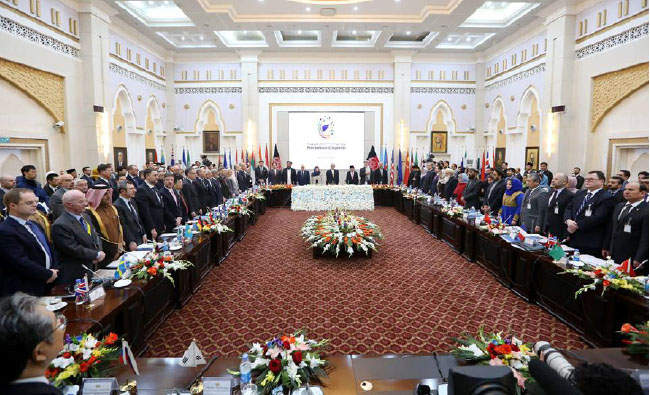The issue of peace had its ebb and flow within the past decade and Afghans were fluctuating between fear and hope. The reconciliation process has been a rocky road for the past and present administrations. The ongoing violence shows the lukewarm response of the Taliban to peace talks.
Kabul government has frequently called warring parties, mainly the Taliban, to stop conflicts, which inflicted heavy casualties on Afghan soldiers and civilians, and resolve the issue through negotiation. Despite the series of the Taliban’s attacks which killed and wounded hundreds of people, the Kabul Process was held to re-call the Taliban to peace table. To view the human fatalities, the graph of casualties in 2016 was the second highest record from terrorism incidents in Afghanistan since the ousting of the Taliban regime in 2001 and Afghanistan was ranked the second worst country, out of 163, in terms of terrorism in the world, the Taliban’s attacks were said to be the deadliest. Within the first eight months of last year, 1,372 civilians were reportedly killed and 2,360 were wounded, according to the Civilian Protection Advocacy Group (CPAG). Hence, the high graph of human fatalities indicate the wide engagement of the Taliban militants in the conflicts without considering negotiation as a second option. Afghans also sustained heavy casualties within the last two months of the current year, which shows that the Taliban are unlikely to review their strategy. In spite of all this fact, the Kabul government urges warring factions to hold talks.
The issue of terrorism engendered a sense of mistrust between Kabul and Islamabad in the past years and harsh rhetoric was exchanged between Afghan-Pak officials. The lack of mutual bonhomie let the militants capitalize on the issue and intensify their attacks more than ever. In short, it led to horrible consequences that harmed both the states.
The Wednesday’s Kabul Process has both its positive and negative aspects. To point out the positive side, the world’s high-ranking officials convened to consider terrorism more seriously and ponder over peaceful way of resolving the issue. The world will know that Afghans paid high sacrifices in terms of combating terrorism and Kabul government will always welcome negotiation with armed parties. Meanwhile, Afghan officials were of the view to promote a friendly relation with Pakistan, which is able to play a pivotal role regarding peace talks.
On the contrary, the one-sided Kabul Process – i.e. without the presence of the Taliban – is not likely to bear the desired result. The Taliban show no tendency in stopping the conflicts and will not succumb to the generous offers of Afghan President Muhammad Ashraf Ghani who proposed to release the Taliban’s prisoners, remove the group from the sanction list, recognize them as a political party,agree with the opening of political office, issue passports for the members of the Taliban, allow freedom of travel, etc.
Secondly, although a dozen of women participated in the Process, their ideas were not asked about the peace issue. For example, the deputy to High Peace Council (HPC) HabibaSarabi said that no women, including her, were asked to have their say in the Process. Thus, women’s participation appears to be symbolic.
Similarly, the nation has no role in the peace process. Recognizing the Taliban as a political party will not be acceptable for the victims’ families. A large number of families lost their members as a result of the Taliban’s attacks during their regime and afterward. According to them, the Taliban are no more than war criminals due to violating the rights of civilians and must be prosecuted. Based on public perception, giving privileges to the militants and war criminals will deteriorate the situation rather than resolving the issue. First, it is a great injustice to the victims’ families. Second, the Taliban’s return to the government’s body will curtail their freedoms besides putting the democracy under question.
Personally speaking, the Taliban will not stop the conflicts. It should be noted that the Taliban are not a political party but a radically ideologue faction and militancy runs in their blood. In other words, if the Taliban were a political party, they would welcome Afghanistan’s peace offering with open arms. Further, Taliban cannot make a decision by themselves as a dependent agent of the Afghanistan Neighboring country, Pakistan. After all, the Taliban has carried out deadly attacks under the term of “jihad” within many years. Hence, they are not able to justify their past practices and killings. If the Taliban’s leader sign an agreement with the Kabul government, their men will turn their Kalashnikovs to him and ask him how he would justify the past. To consolidate his position and become a hero in the eyes of the Taliban, their leader Mullah Haibatullah Akhundzada will urge his men to intensify their attacks. He will remember a number of the Taliban’s high-ranking officials who were assassinated due to their preparation for peace talks.
Home » Opinion » The Outcome of Kabul Process
The Outcome of Kabul Process
| Hujjatullah Zia

